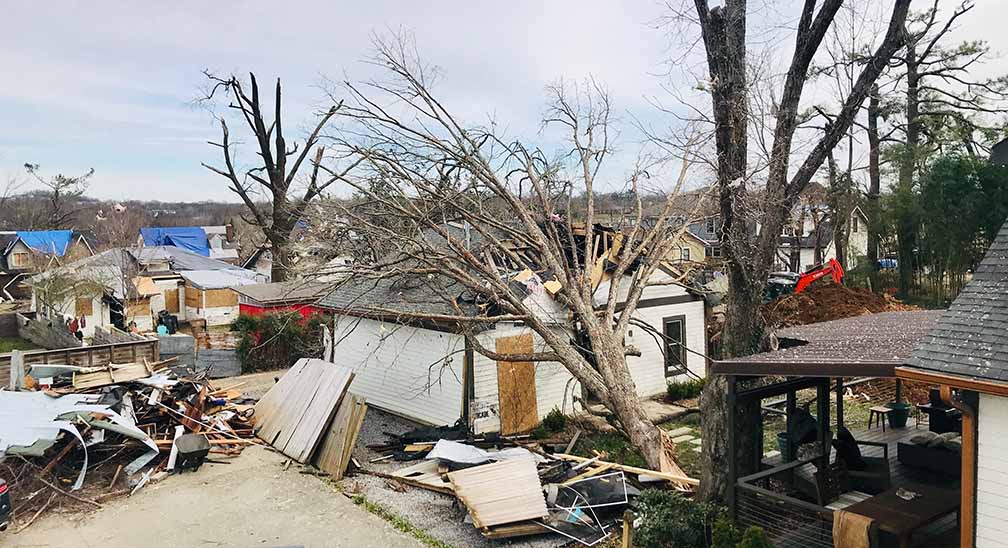Home Damage: Storms, Rodents, Fire
Seniors’ number one concern is housing. Seniors don’t want to leave their homes. This requires the ability to properly manage their homes. Otherwise, damages from fires, storms, and other perils may force them out with little hope of ever moving back. This article discusses perils: what are they, and how do you address them?

Types of Home Damage
Seniors that stay in their own homes face damage that may harm their homes. Insurance policies define these damages as perils. Some types of perils are covered by standard insurance policies, others are not. These include fire, windstorms, hurricanes, tornadoes, lightning, hail, freezes, and theft. But others are not. These include floods, earthquakes, slow leaks, and pest damage.
Covered Damages
Covered damages, or perils, are those included in most insurance policies. You should always read your insurance policy before signing up for a policy. Also, it’s helpful to write your agent and ask specifically how certain damages are covered.
Fire
Most fires are caused by you, and your insurance company knows this. As long as the fire was caused by an accident, it’s likely to be covered. Fire damage usually breaks into (1) the damage caused by the fire, the smoke and (2) the damage from the fight to put out the fire (water, felled walls, etc.).
Seniors With Dementia & Fire Coverage
As our nation ages, more people will try to stay home with dementia. Whether insurance companies will cover homes with dementia residents will likely follow the increased level of risk. For example, insurers are currently denying hoarders coverage (not writing policies). People who allow stuff to accumulate in their homes. The risk of fire and extensive damage fighting that fire is too high.
As seniors, and especially seniors with dementia, an accident may be more likely and how insurance companies respond will likely change over time. Today, most fires caused by dementia patients are covered. However, coverage may be denied if the dementia patient has started several fires. Taking steps to prevent accidental fires also helps ensure that a dementia family member is covered.
Lightning
Lightning is a bolt of electricity from the sky. Usually during a storm. Insurance coverage looks at the strike, the near-miss, and the electrical surge caused by a neighborhood strike. Strikes are easy to identify. So is the damage they cause. The damage can come from the strike itself, any fire caused by the strike, or any electrical surge or spike caused by the strike. The near-miss and the surge are more difficult to tie to the strike. In these cases, the evidence of the strike and the allegedly caused surge may be harder to identify.
Hurricanes, Tornadoes, Windstorms & Hail
Storms can bring wind, rain, and hail. All these perils are generally covered in standard insurance policies. The wind and hail are most damaging to roofs. Wind can lift and damage shingles and remove granules. Hail can have similar effects. Compromised roofs allow rain or water associated with a storm (from the sky) can get into the home and cause additional damage.
Theft
Theft is when your personal property is stolen. Insurance policies usually cover theft. However, what is covered and up to what amount are specific to the policy.
Uncovered Damages
Not all the damages below are uncovered under all insurance policies. However, Carmen and I mention them here so you can pay special attention to these perils. You should ask your insurance agent about these perils and have them put in writing the coverage under the policy you buy.
Flooding
Flooding is when water from any source rises and flows into your home. This is different than water that enters your home from above during a storm. The catastrophic nature of large floods has made damage from floods a separate peril from other perils. In this sense, insurance policies must specifically define, name, and cover this peril. Often, flood coverage must be obtained as a separate insurance policy.
Earthquakes
If you’ve ever experienced an earthquake, you know the helplessness you feel while they occur. Everything shakes. If it shakes hard enough things come apart and fall down. This includes home structures. Standard insurance policies don’t cover earthquake damage. Insurers must get a separate insurance policy for earthquakes.
Rodent Damage
Rodents like squirrels, raccoons, moles, and mice cause immense damage to homes. So do insects like ants, termites, and wasps. Rodents can gnaw through roofs and walls, chew wires and eat insulation. This initial damage often leads to ensuing damages. The ensuing damages can be worse. For example, rodents can open holes in roofs and walls that allow water to enter the home. Insurance policies exclude damage that occurs over time. The homeowner is responsible for this damage. Insurance companies expect the homeowner to find and fix this damage with routine maintenance. The best way to prevent these harms is insurance and regular maintenance.
Other Resources On Home Damage
Good article on the most common forms of home damage here.
See our Section on Insurance here.